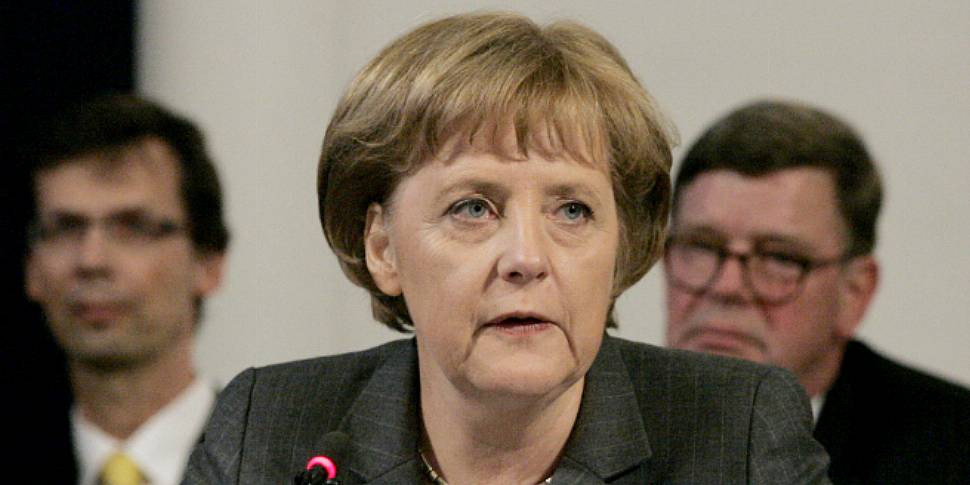German Chancellor Angela Merkel has ruled out a writedown of Greece's massive debt, as EU officials threatened a funding cut-off to Greek banks.
Mrs Merkel and European Central Bank (ECB) policymakers have hardened their stance this weekend over fears the Greek government does not agree it renew its bailout package in February.
"There has already been voluntary debt forgiveness by private creditors, banks have already slashed billions from Greece's debt," Mrs Merkel said on Saturday.
"I do not envisage fresh debt cancellation."
In a thinly veiled threat to Athens and rising anti-austerity political movements such as in Spain, she added: "Europe will continue to show solidarity for Greece, as for other countries hit particularly hard by the crisis, if these countries undertake their own reforms and savings efforts."
Greece's newly elected anti-austerity government said it will not co-operate with its international "troika" of creditors - the EU, ECB and the International Monetary Fund.
Greece's finance minister Yanis Varoufakis said that despite warnings his country would shortly run out of money, his government preferred to do without fresh funds and instead renegotiate its entire €240bn (£180bn) bailout package.
Athens has been promised another €7.2bn (£5.4bn) in funds from the troika if it completes reforms required by its lenders by 28 February, when the bailout programme runs out.
Erkki Liikanen, a member of the ECB's policymaking Governing Council, said that funding could dry up if Greece does not remain in an agreed programme.
"We don't want the €7bn"
On Friday Mr Varoufakis slammed the current system: "This government was elected on the basis of analytically questioning the very logic of the programme now being applied."
"We don't want the €7bn ... We want to sit down and rethink the whole programme."
This echos comments that he made speaking to Newstalk Breakfast on Tuesday - when he discussed Syriza's plans to restructure its debts - and the broader issue of Europe's debt-burden.
Greece believes repayments pegged to the economic growth rate would better support the fragile economy.
Mr Varoufakis said Athens was willing to negotiate with its lenders but not with the troika, which he described as a "committee built on rotten foundations".
The troika was formed in 2010 to rescue debt-riddled Greece with the bailout on the condition Athens imposed huge spending cuts and fiscal reforms.
Prime Minister Alexis Tsipras was elected last Sunday on a platform of ending austerity and erasing most of the country's national debt.
Mr Varoufakis meets French counterpart Michel Sapin in Paris on Sunday and British Chancellor George Osborne on Monday.
Mr Tsipras will meet Italian Prime Minister Matteo Renzi on Tuesday and French President Francois Hollande on Wednesday, but has no plans to visit Germany - Europe's biggest economy and its effective paymaster.
Originally published at 9.12am









